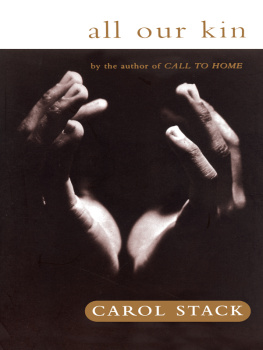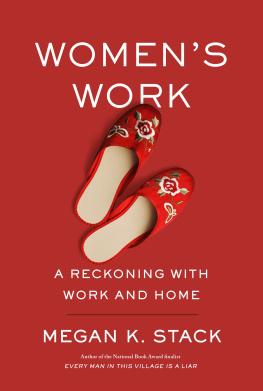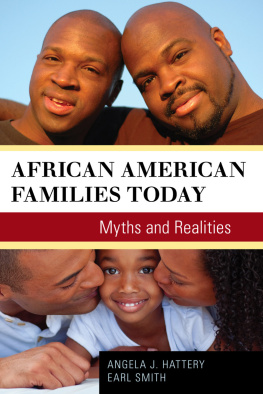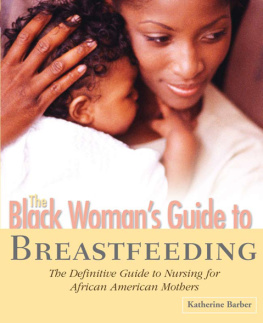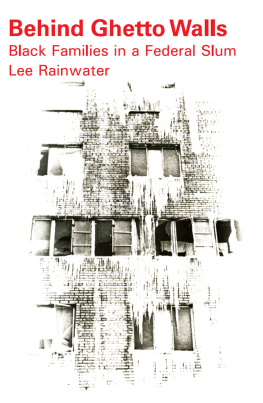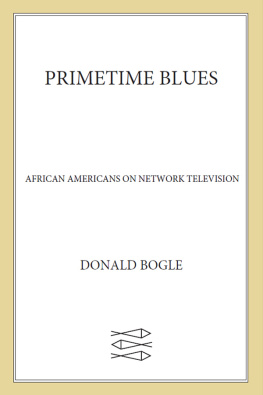Stack - All our kin: strategies for survival in a Black community
Here you can read online Stack - All our kin: strategies for survival in a Black community full text of the book (entire story) in english for free. Download pdf and epub, get meaning, cover and reviews about this ebook. City: New York, year: 1975;2012, publisher: Basic Books;Harper and Row, genre: Politics. Description of the work, (preface) as well as reviews are available. Best literature library LitArk.com created for fans of good reading and offers a wide selection of genres:
Romance novel
Science fiction
Adventure
Detective
Science
History
Home and family
Prose
Art
Politics
Computer
Non-fiction
Religion
Business
Children
Humor
Choose a favorite category and find really read worthwhile books. Enjoy immersion in the world of imagination, feel the emotions of the characters or learn something new for yourself, make an fascinating discovery.
All our kin: strategies for survival in a Black community: summary, description and annotation
We offer to read an annotation, description, summary or preface (depends on what the author of the book "All our kin: strategies for survival in a Black community" wrote himself). If you haven't found the necessary information about the book — write in the comments, we will try to find it.
This landmark study debunked the misconception that poor families were unstable and disorganized. Here is the chronicle of a young white womans sojourn into The Flats, an African-American ghetto comm
Stack: author's other books
Who wrote All our kin: strategies for survival in a Black community? Find out the surname, the name of the author of the book and a list of all author's works by series.
All our kin: strategies for survival in a Black community — read online for free the complete book (whole text) full work
Below is the text of the book, divided by pages. System saving the place of the last page read, allows you to conveniently read the book "All our kin: strategies for survival in a Black community" online for free, without having to search again every time where you left off. Put a bookmark, and you can go to the page where you finished reading at any time.
Font size:
Interval:
Bookmark:

Dedicated with respect and admiration to my parents, Ruth and Isadore Berman, to my friend Ruby Banks, and to the other people of The Flats
The table on pp. 102, 103, appears in the authors essay, The Kindred of Viola Jackson: Residence and Family Organization of an Urban Black American Family, pp. 303312, in Afro-American Anthropology: Contemporary Perspectives, edited by N. E. Whitten and John F. Szwed, copyright 1970, used with the permission of The Free Press, a division of Macmillan and Company.
ALL OUR KIN. Copyright 1974 by Carol Stack.
Published by Basic Books, A Member of the Perseus Books Group.
All rights reserved. Printed in the United States of America. No part of this book may be used or reproduced in any manner whatsoever without written permission except in the case of brief quotations embodied in critical articles and reviews. For information address Basic Books, 387 Park Avenue South, New York, NY 10016-8810.
Designed by Janice Stern
First HARPER PAPERBACK published in 1975. Reissued by Basic Books, 1997.
ISBN: 0-06-131982-1
eBook ISBN: 9780786722662
: Grandpa rental Link Broken
: Parental Link Broken
: Spatial Relations in Magnolias and Calvins Domestic Networks
: Kin-Structured Domestic Neworks
. Frequency of Child-Keeping, AFDC Data
. Frequency of Child-Keeping, AFDC Data
. Status and Location of Biological Mother
. Patterns of Child-Keeping, AFDC Data
. Patterns of Child-Keeping, Residence Histories
. Child-Keeping Expectations, AFDC Data
I wish to acknowledge the important influence and example of several people. My most devoted discussant and tireless co-researcher in the field study is John R. Lombardi, whose participation in the analysis of field data was invaluable and whose keen understanding of social forces make this work as much his as mine. I am pleased that he agreed to co-author the conclusions to this book.
I wish to thank F. K. Lehman for his time and knowledge in discussing the issues raised here, and Edward Bruner for his intellectual and emotional support during my graduate studies. I am also indebted to Nancie Gonzalez, Eva Hunt, Dimitri Shimkin, John Stack, Charles Valentine and Betty Lou Valentine, Norman Whitten, and the late Oscar Lewis for encouragement, counsel, and criticism.
I am grateful to Douglas Butterworth, Joseph Casagrande, Louise Lamphere, Marcella Mazzarelli, Jenny Phillips, David Plath, Bill Ringle, Herbert Semmel, and Robert Weiss for helpful comments on preliminary versions of the manuscript, and to Troy Armstrong, Marty Beaumont, Myra Bluebond, Susan Cobb, Peter Hainer, Norma Linton, Douglas Midgett, Duane Orlowski, Mimi Rodin, and Brett Williams, all of whom have been helpful and generous with their time. Sonya Salamon provided excellent research assistance in the early stages, and sympathy and support during the entire course of the study. Shirley Wattenberg offered continual support and assistance in the initial stages of the case history survey of welfare families. I owe a special debt of thanks to Marion Brinkerhoff who typed endless versions of this manuscript over the past three years.
I would also like to thank my colleagues at the Child Development Laboratory, Queenie Mills and Molly Mowrer, for their friendship and encouragement. Warm thanks to Jeannette Hopkins of Harper & Row for her editorial and intellectual guidance in the preparation of the manuscript.
My three-year-old son Kevin was a wholehearted participant in the research effort, and comforting to me in moments of stress.
I am deeply grateful to the people of The Flats who gave their cooperation and friendship.
This research was supported by the Department of Health, Education, and Welfare (MH 12247-01).
This introduction anticipates curiosity about how a young white woman could conduct a study of black family life, and provides a basis for evaluating the reliability and quality of the data obtained.
The questions raised relate to a broad spectrum of questions fundamental to social analysis. Is it possible for an outsider who symbolizes the dominant culture to enter a black community, win the communitys participation and approval, acquire reliable data, and judge its reliability? What roles can the researcher assume? Can the observer grasp how his questions are interpreted by the informants? Can the observer discover rules used by those studied for managing their daily affairs? Can the observer distinguish his own theories for making sense of the data from the meanings given by community members in their everyday life? How do the initial channels chosen to gain an entree into a community affect the findings and biases of an anthropological field study?
In both industrial and nonindustrial societies, researchers have typically established their first contacts with men who hold powerthe colonial administrators, tribal chiefs, local mayors, and judges. These men draw upon their status in the community and favors owed to them to usher the researchers into the community, the first link in what becomes a chain of introductions. Anyone proceeding through other channels runs the risk of offending those in power and provoking an invitation to leave the community.
Within most black communities in the United States today, power is divided among the older generation of professionals in the black establishment and the younger activist leaders and organizations. I could have gained my first contacts in The Flats by working through the established network of black men and women who had status and power in The Flats and in the larger community of Jackson Harbor. In the mid-sixties two other white social scientists had entered the black community in Jackson Harbor through contacts with preachers, teachers, social workers, and other black professionals. Although they were not conducting a study requiring intensive participantobserver techniques, their research was confined and limited. They came into contact only with individuals and families chosen by the black establishment to represent the community: churchgoers, families on good terms with their social workers, and those men and women who had obtained legal marriages. Even more decisive as a handicap was their identification, in the eyes of those studied, with those black leaders who personally derived their status and importance from their acceptance within the white community. They were regarded as uppity individuals who thought they were too good to sit down on an old couch.
When I first began this study in the mid-sixties, the community itself had produced a few articulate, intellectual spokesmen against racial and political injustice. Their speeches and their activities were aimed primarily at the white community. Within the black community itself, they were not controlling voices. I later came to know the young men and women involved in political activism within the black community as I became committed to their causes: a free health center, a Welfare Rights Organization, a job-training center, black businesses. Many of these individuals whom I met in the initial stages of this research later became members of activist organizations in The Flats. Such persons may, in the future, decide whether a research study of their community may be conducted and by whom. They may choose to censor findings that they believe may be used to repress, harm, or manipulate those studied.
Font size:
Interval:
Bookmark:
Similar books «All our kin: strategies for survival in a Black community»
Look at similar books to All our kin: strategies for survival in a Black community. We have selected literature similar in name and meaning in the hope of providing readers with more options to find new, interesting, not yet read works.
Discussion, reviews of the book All our kin: strategies for survival in a Black community and just readers' own opinions. Leave your comments, write what you think about the work, its meaning or the main characters. Specify what exactly you liked and what you didn't like, and why you think so.

